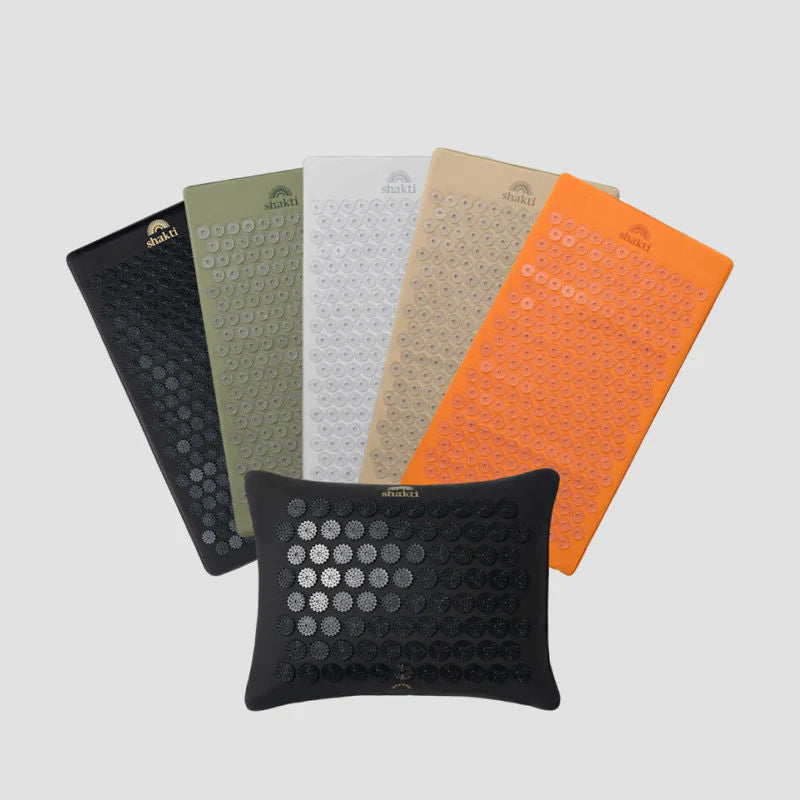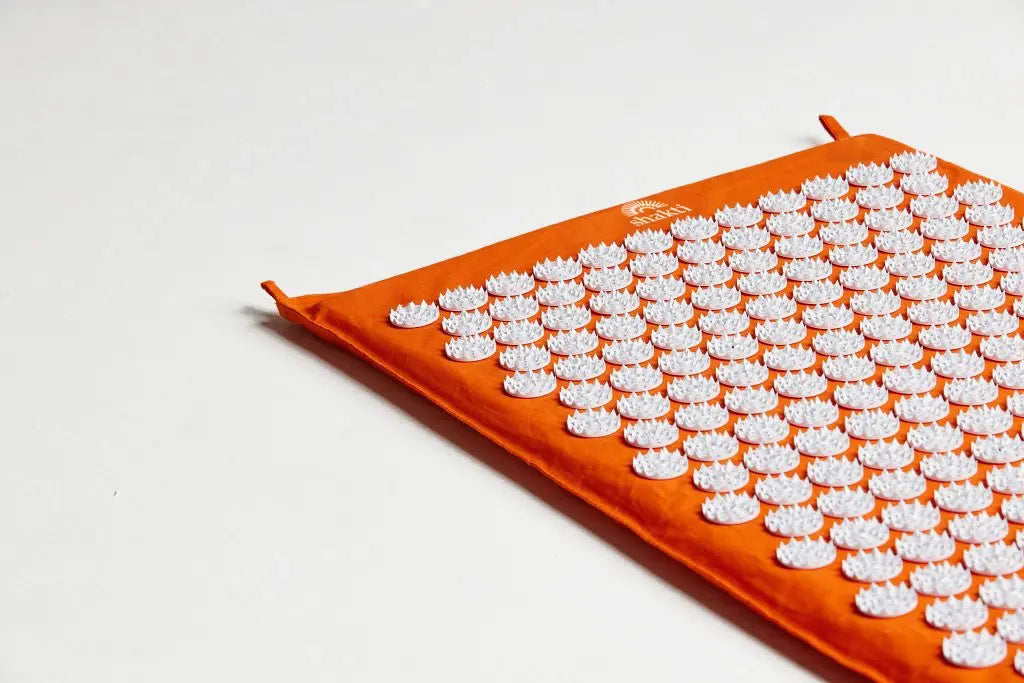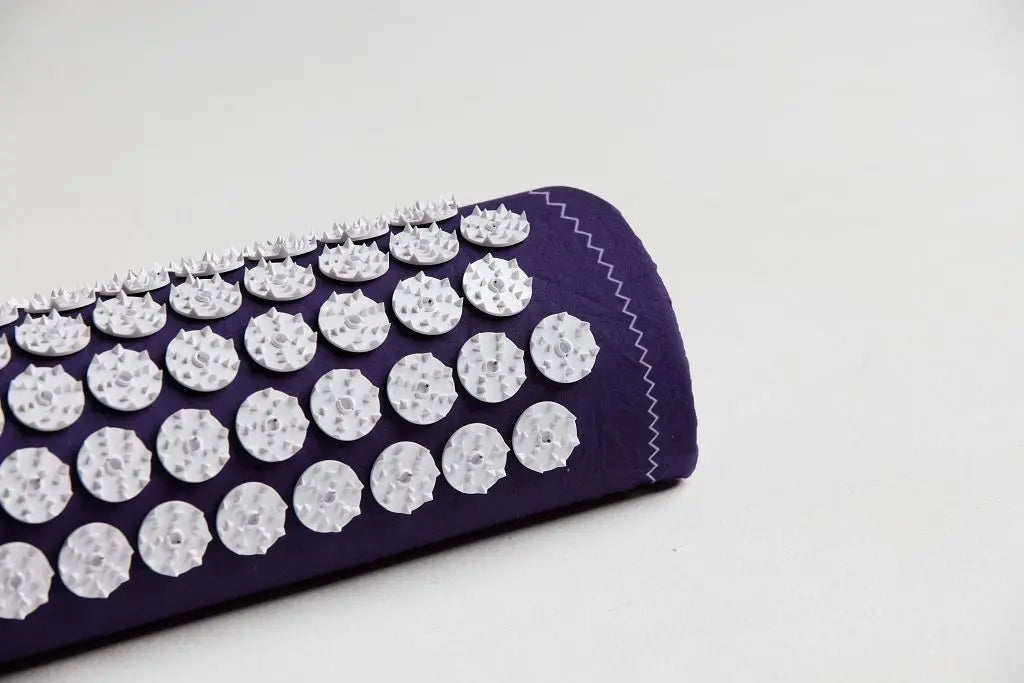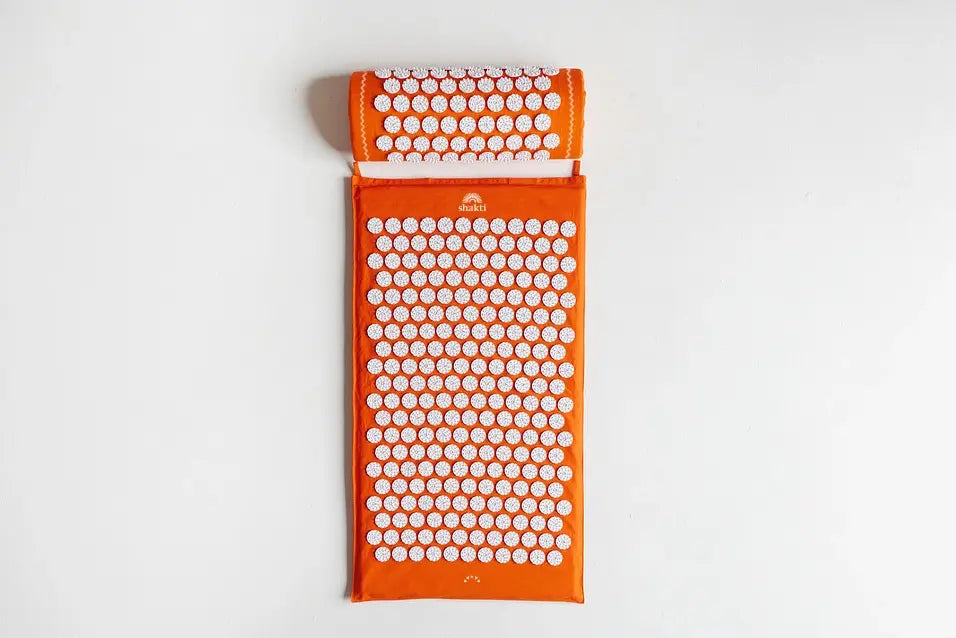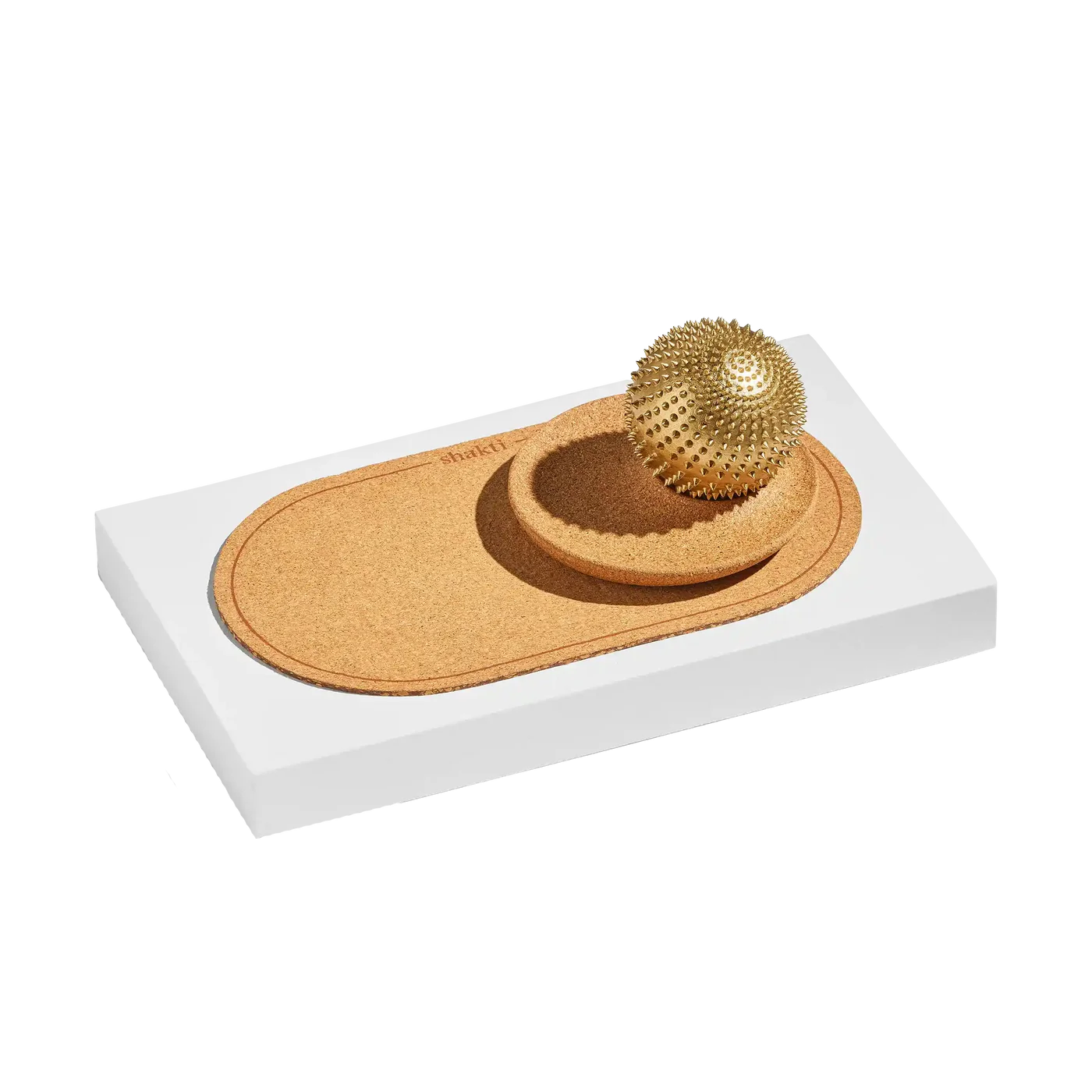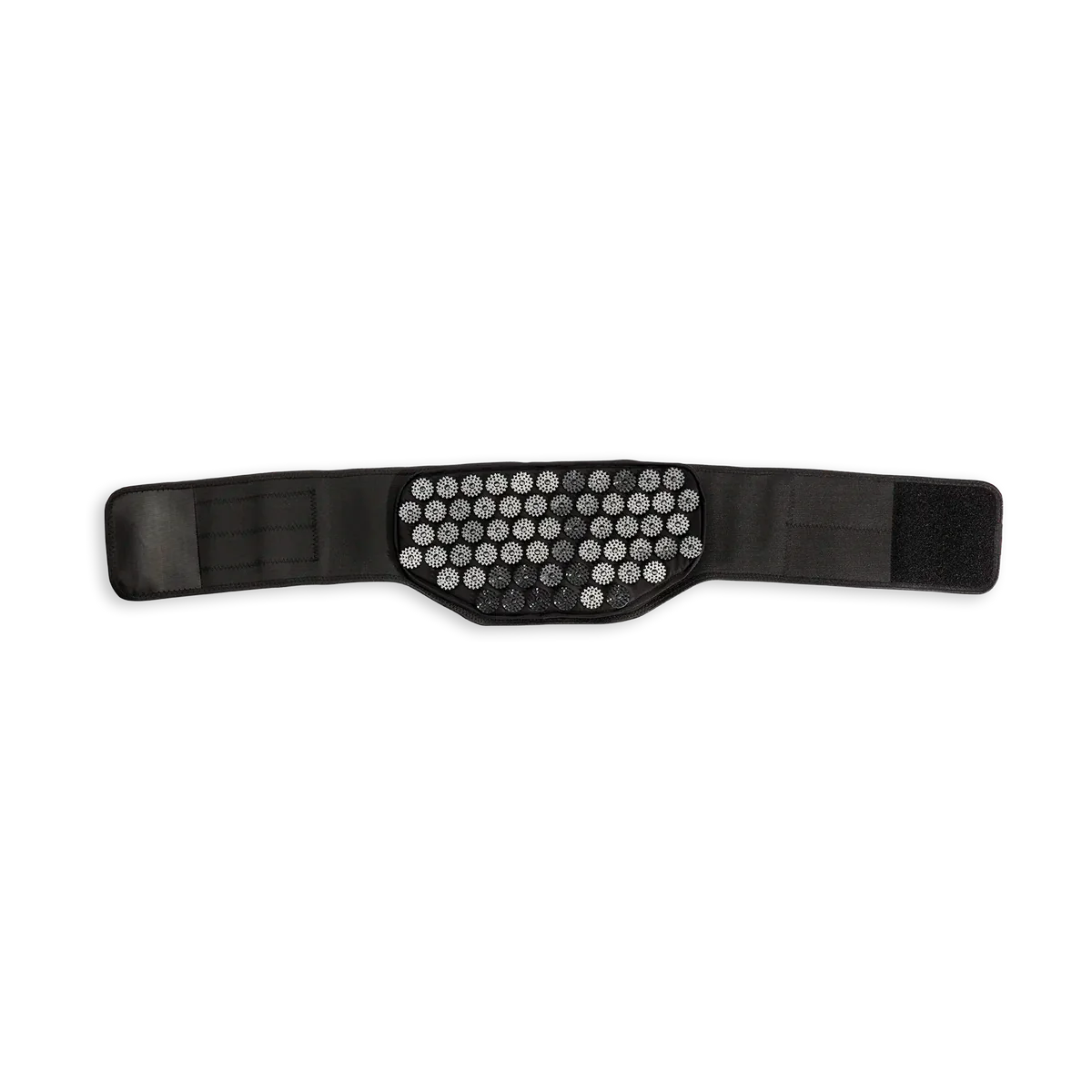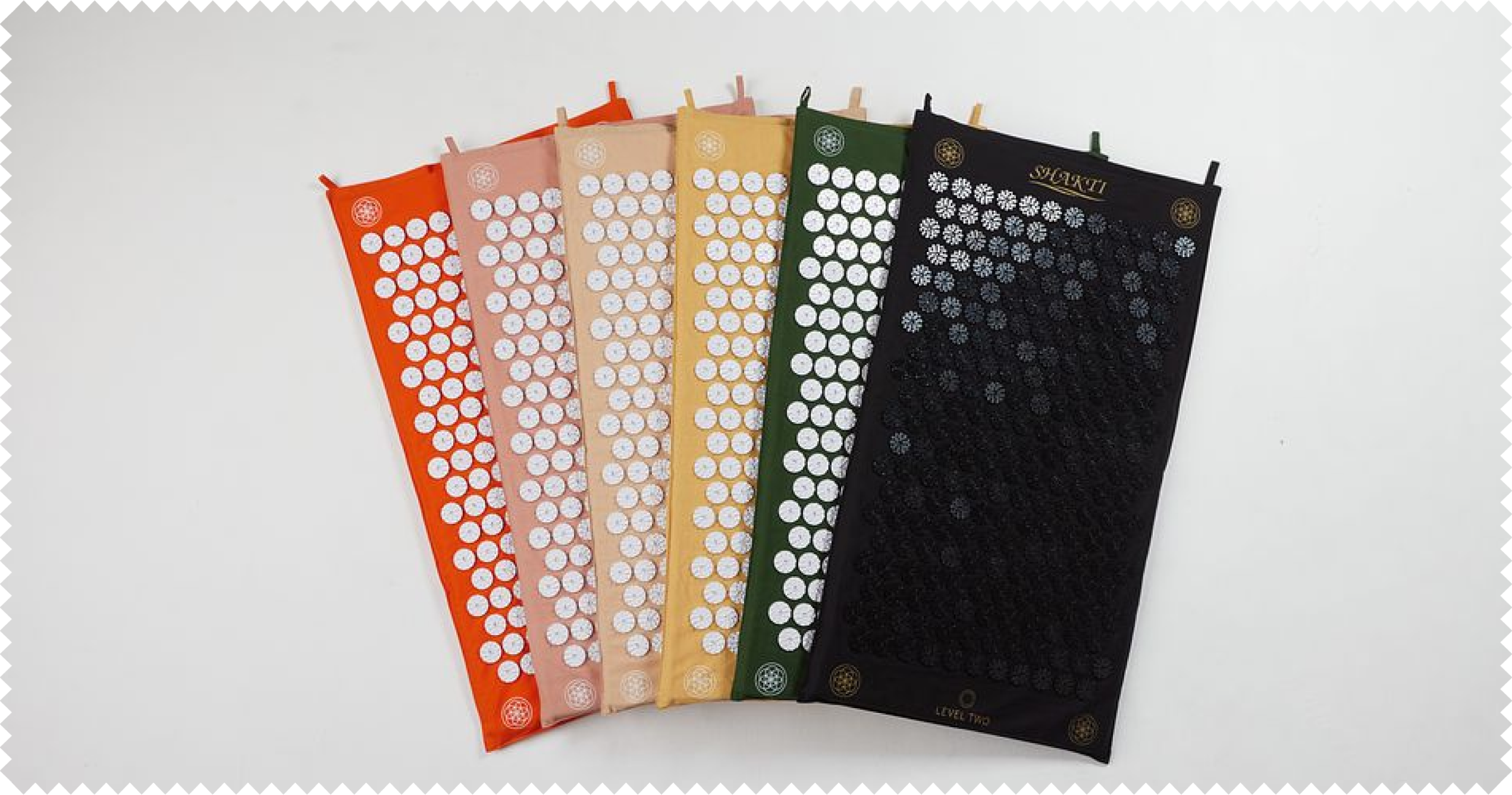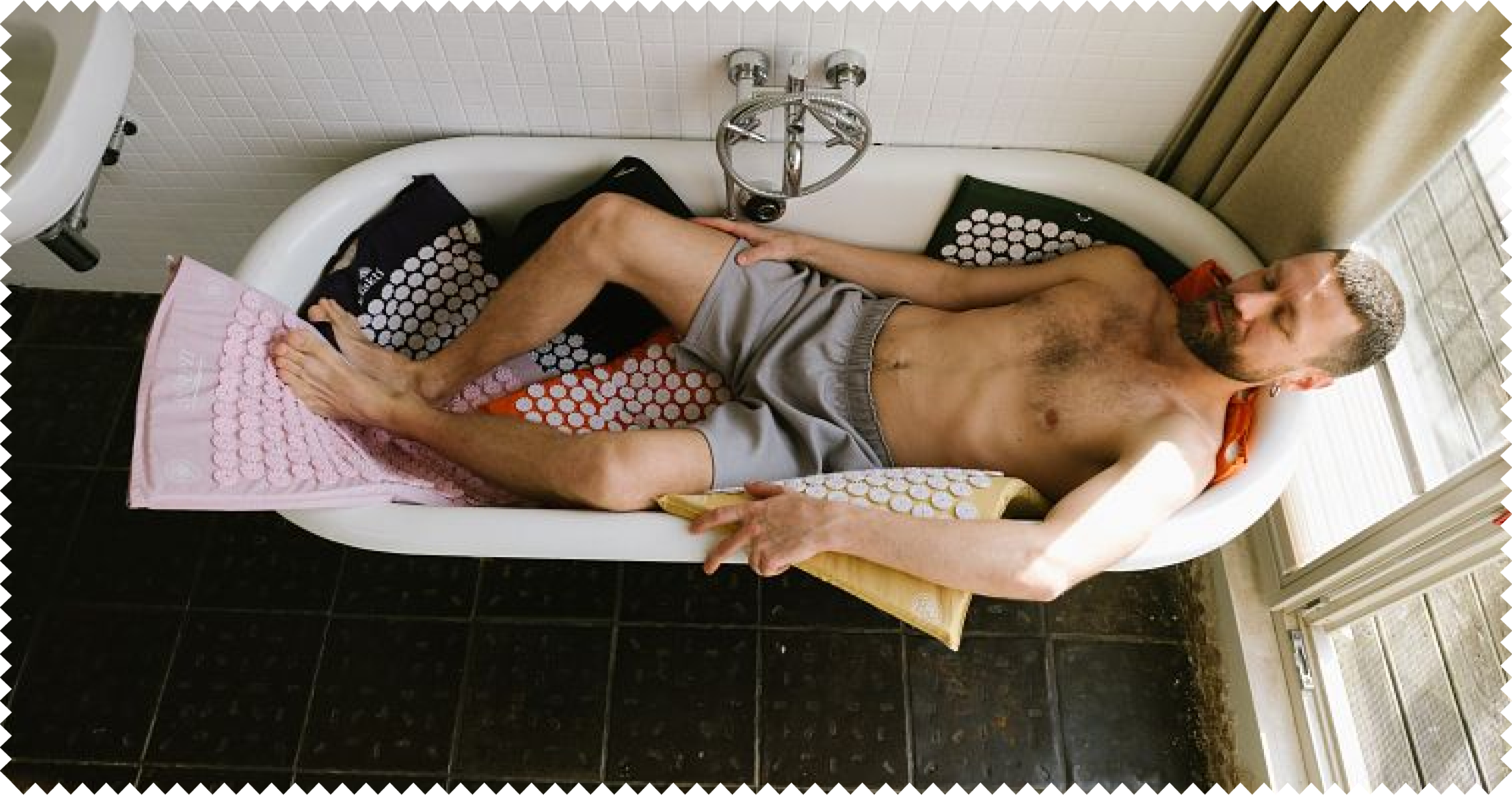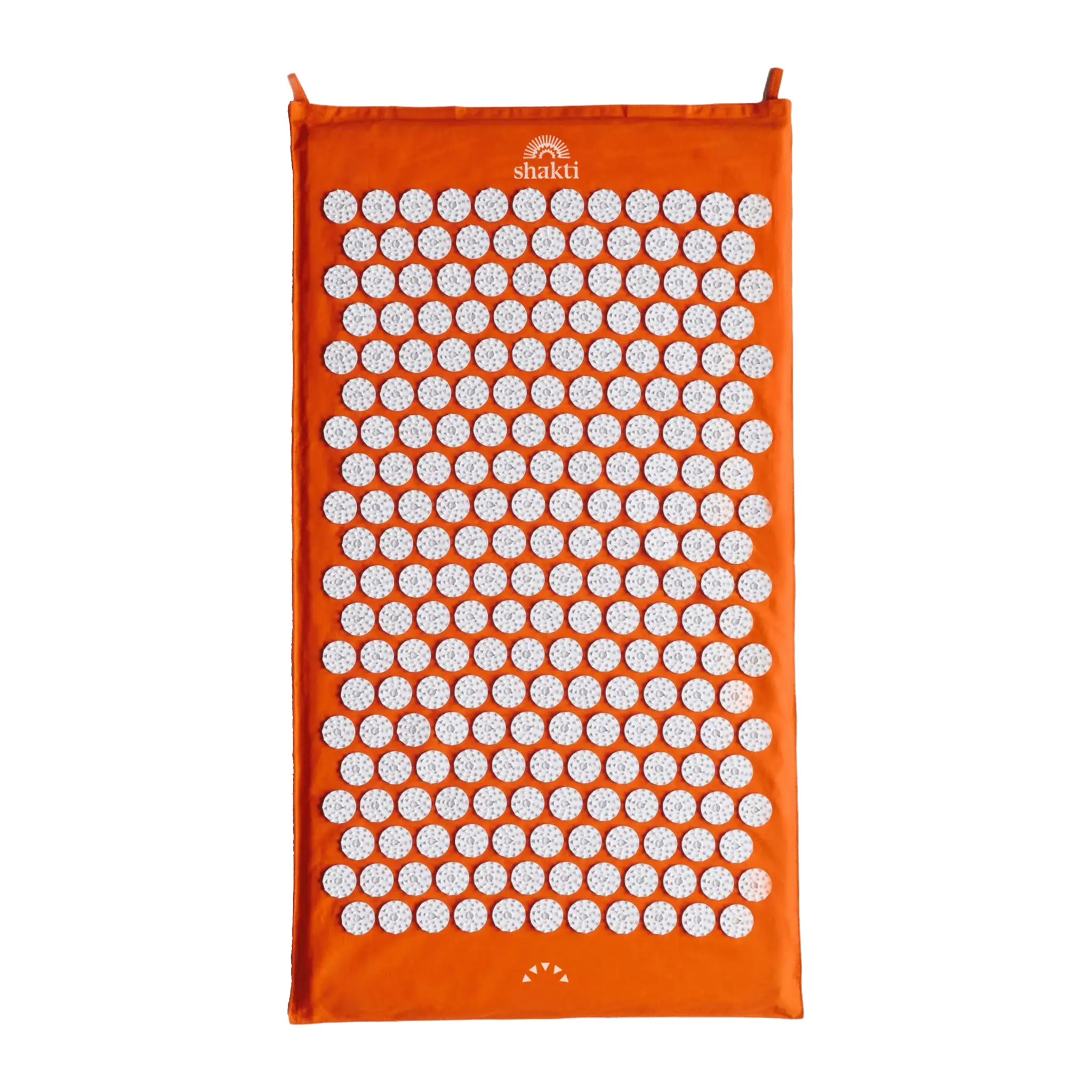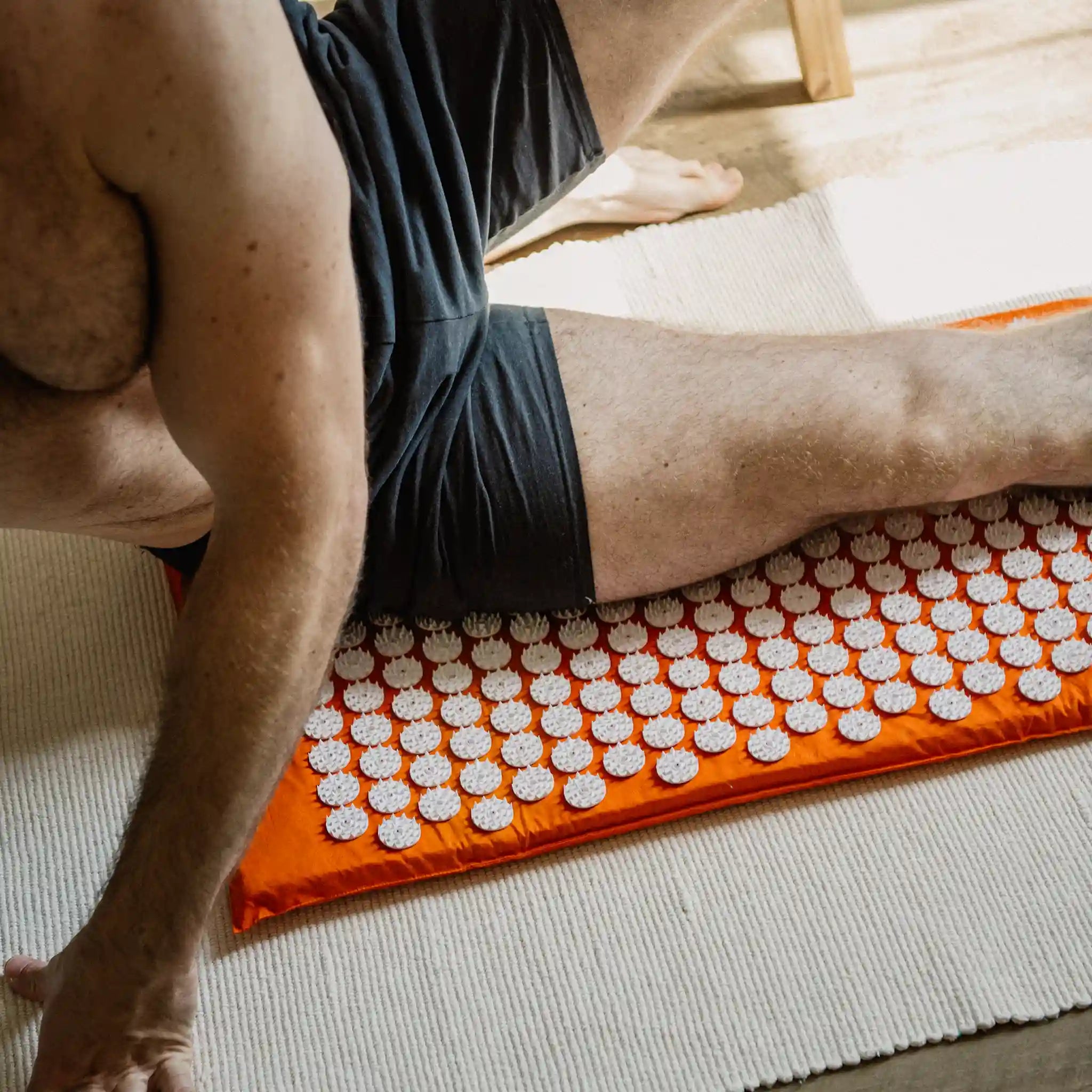In this article, we will show you how acupressure with the Shakti Mat can be helpful for chronic inflammatory bowel disease. If you are not affected, you may be wondering: What is this actually?
Inflammatory bowel disease (IBD) differs from other bowel problems in that it is permanently present in the body and most often causes episodic symptoms; it is also not contagious.
Strong medications are often used to treat IBD in order to suppress the symptoms of the disease, but it is not uncommon for sufferers to wish for different or additional ways to cope with their situation. People who go through life with the challenge of inflammatory bowel disease (such as Crohn's disease or ulcerative colitis) are often particularly vulnerable to physical and emotional stress. This is exactly where the acupressure mat comes in.
Content
1st test of the Shakti Mat with YouTuber Denny Kircheis
2. acupressure for Crohn's disease and other chronic inflammatory bowel diseases
3. classic supine position on the acupressure mat
4. prone position on the Shakti Mat
5. stimulation of the feet through the acupressure tips
6th interview with CED expert & YouTuber Denny Kircheis
Test the Shakti Mat with YouTuber Denny Kircheis
Who better to test our Shakti Mat acupressure mat than someone who not only knows about chronic inflammatory bowel disease from their own experience, but has also set themselves the mission of helping other sufferers? This is precisely why we have enlisted the help of YouTuber Denny Kircheis for this article.
In his video, he shows how he uses the Shakti Mat and also trains your laughter muscles - because that's exactly what it's all about for people with IBD: letting go of too much stress. But now we'll let Denny have his say:
Acupressure for Crohn's disease and other inflammatory bowel diseases
In acupressure, pressure is applied to stimulate specific areas of the body. The pressure results in increased blood flow to the affected area of the body. Increased blood flow in turn ensures better supply and relaxation of the surrounding tissues and can stimulate the flow of lymphatic fluid in the body, which in turn is essential for the removal of bacteria, dead cells and metabolic waste products. It is precisely this principle of pressure that the acupressure mat takes advantage of and can help the body of people with IBD to relax in many cases. The less tension in the body, the more the general well-being increases.
Denny's view is that it is helpful for the body that you use the mat - but how you do it is absolutely up to your own preferences. Each person living with inflammatory bowel disease has individual preferences as to what is helpful and does good. To help you try it out, we have compiled the most popular uses of the mat below.
Classic supine position on the acupressure mat
The classic supine position is particularly suitable for Shakti Mat beginners with chronic inflammatory bowel disease. Due to the large surface area of the back, the pressure is evenly distributed and the unfamiliar feeling of the spikes pressing into the tissue feels less intense than when you are standing on the mat, for example.
Take your time at the beginning to discover the new feeling. Maybe turn on an audio book or music of your choice and close your eyes. If the peaks still feel too intense for you, leave a thin T-shirt on for now or place thin fabric (such as a scarf) between you and the acupressure mat. Some people even fall asleep on the mat for a longer period of time, while others prefer to lie on it for 5-10 minutes. There is no fixed time that you have to lie on the mat. Listen to your body and discover what feels good.
Prone position on the Shakti Mat
A more advanced exercise is the prone position on the mat. Since this can have a particularly strong stimulating effect, it is advisable to practice carefully and with a thin T-shirt. Whether the prone position is comfortable for you - can hardly be said in advance - just try it out. Some people with IBD find the increased blood circulation in the abdominal area pleasant and helpful, while for others the feeling is simply too much.
Our tip: Practice first on a day when you are well and do not feel any discomfort to test how it feels for you. You can place the mat in your bed or on the floor and rest your head on your folded arms or a rolled up towel.
Stimulation of the feet through the acupressure tips
When you place your feet on the mat, your entire body weight presses into the tips. This is great for increasing blood circulation and afterwards you will feel as if you have had a powerful foot reflexology massage - but for an acupressure beginner it can cause a challengingly strong pain stimulus. That's why it's a good idea to work your way up in stages.
First sit on a chair and place the mat on the floor in front of you. Now step on it with your bare feet and exert more pressure on one foot and then on the other in a trampling motion to get used to the feeling.
The first time you want to stand on the mat with all your weight, place it in front of a table or, for example, your kitchen counter to support yourself as you step up and down on the mat. Feeling too strong? Put on socks to soften the intensity of the spikes. Again, the point is not to be strong, but to determine the right personal comfort level so that the acupressure can do its job and relax you.
Read more about applications with the acupressure mat in our blog article.
Interview with CED Expert & YouTuber Denny Kircheis
Tell us a little bit about yourself. How can our readers imagine Denny?
Denny: My name is Denny and I help people with Crohn's disease, ulcerative colitis or other chronic inflammatory bowel diseases (IBD) to find a way of life for themselves that no longer gives these diseases a chance to cause trouble. I myself have been diagnosed with Crohn's disease since 2011 and have "survived" many dark years full of bloody diarrhea, pain, weight loss and depression.
At times I took 21 pills, rectal foams and infusions with severe side effects. The doctors told me that my body was fighting itself and had to be stopped. And most of the time I also felt like something inside me didn't want to live anymore.
The good news is that this disease has taught me a lot and at some point became a great motivator for me to better understand myself and my body. I dove into umpteen books, watched video courses, and tried a great many curious things to get a handle on this disease. At times I even did the Carnivor diet. That means I ate only meat, water and salt for 3 months. But then I also lived vegan for a long time, ketogenic and pretty much every trendy diet you could think of.
Looking back, there were some really crazy decisions. But in the end, I was able to gain a lot of experience, which I report on my YouTube channel. I hope that through my videos some people don't have to make the same mistakes as I did.
You live with a chronic inflammatory bowel disease. What does this mean for your everyday life?
Denny: I consider myself very lucky that through my experiences over the last ten years I have now found my "green branch", where I neither have symptoms of Crohn's disease nor take medication. In my everyday life today, my chronic illness only plays a major role when it comes to producing a new video.
But of course, there are dietary restrictions here and there, as anyone with IBD knows. However, I have been able to get used to these very well and only very rarely miss the well-known evil but delicious food offenders. But what are rules without exceptions?
However, through my own experiences and contact with many sufferers, I also know how hard it can sometimes be to have to go to the toilet 15 times a day and live in constant fear that the next episode will soon be around the corner. No one should have to live like that.
What would you like to say to other people reading this?
Denny: I think the most important thing I could give anyone is to keep an open mind. Medical care is out of the question with IBD, but in my case there has usually been a lack of support when it comes to long-term health in addition to acute medication. What should I eat now? How much exercise is good? What influence do my emotions have on my gut and how do I deal with them? Is my job really beneficial for my wellbeing?
There are so many great people out there books, concepts, and exercises that have enriched my life forever and had a positive impact on my gut. I know it's hard to have hope sometimes, especially when things get tough again, but it's always been the perfect time to throw everything out the window and refocus.
But my doctors always looked askance when I said that something like meditation, mindfulness exercises or yoga felt really great. Today, I can only smile at the faces they made. At some point, I started to take the reins of my health into my own hands and openly explore new perspectives and views. Yes, I think that's what got me through the darkest days.
Do you have any tips for people who have not had any previous contact with IBD on how they can support an affected person in a meaningful way?
Denny: There is something that drives people with IBD crazy and that is when they are not taken seriously. "You just need to get out into the fresh air! A vegan diet helped my brother-in-law, you should do the same! Don't always be so negative! Oh, you're just imagining things!" or my favorite: "She/he just doesn't feel like working".
Not being taken seriously only adds salt to the already gaping intestinal wounds. Granted, it's not possible to perfectly empathize with how a person with IBD (or anyone else in general) is really feeling, but what can best help the battered tummy in times of need is warm, complete acceptance. Just being there when the person isn't feeling so great again, without having to "treat" the problem or give advice. Most of the time, people with IBD know what they need right now, and getting non-judgmental support is worth its weight in gold.
We would like to thank Denny Kircheis for his time and all the information on living with chronic bowel disease and for sharing his experiences with our acupressure mat in the video.
If you would like to discuss the topics of acupressure and acupressure mats for a chronic bowel disease such as Crohn's disease and give other affected people tips or ask questions, please visit us and the community on Facebook.
About the author
Antje Wickboldt is a freelance author from Berlin. She has been studying the body's self-healing powers for over 10 years and, as a lecturer, explains in interactive presentations for companies and offices how tension can be relieved with the help of acupressure and massage.
Sources
- Andrews, Synthia and Dempsey, Bobbi: Acupressure & Reflexology for Dummies. Wiley Publishing, Indianapolis 2007. p. 205 f.
- Reed Gach, Michael: Healing points. Acupressure for self-treatment of diseases. Knaur, Munich 1992. p 181 ff.
- YouTube channel: Artgerecht leben with Denny Kircheis, https://www.youtube.com/channel/UCrABZ1OMRgKWgjkd_JXG49Q


